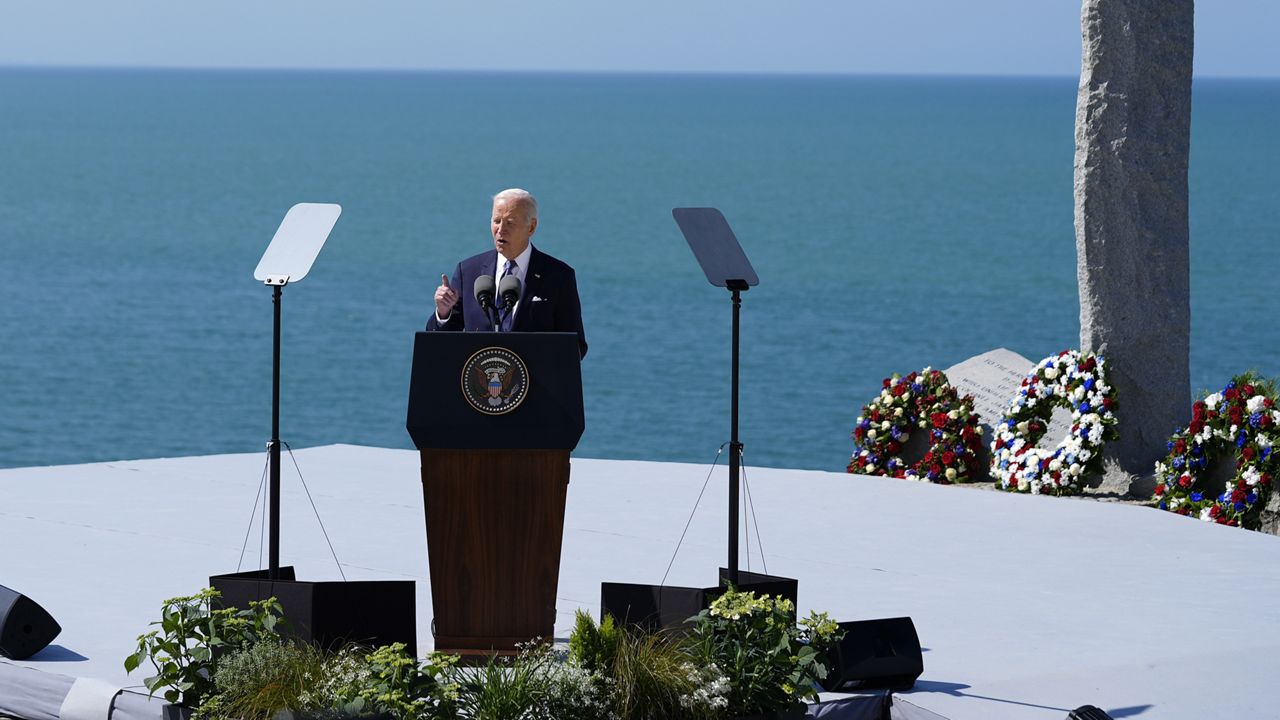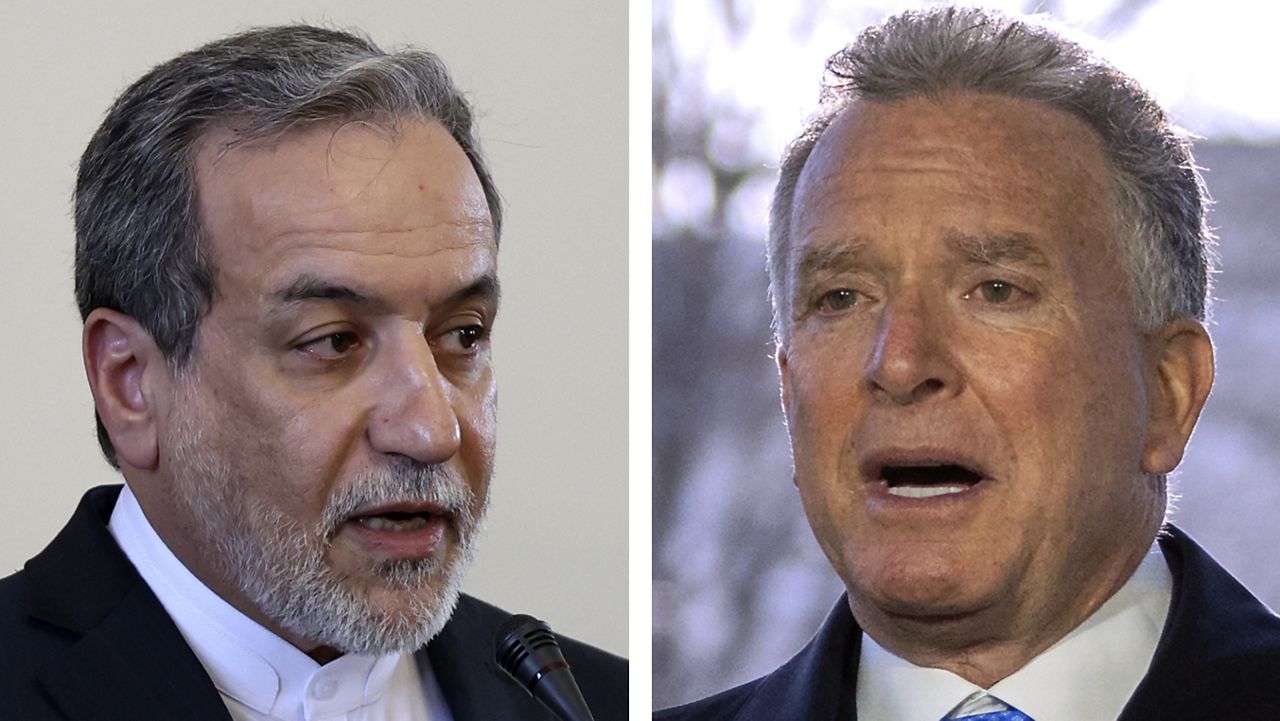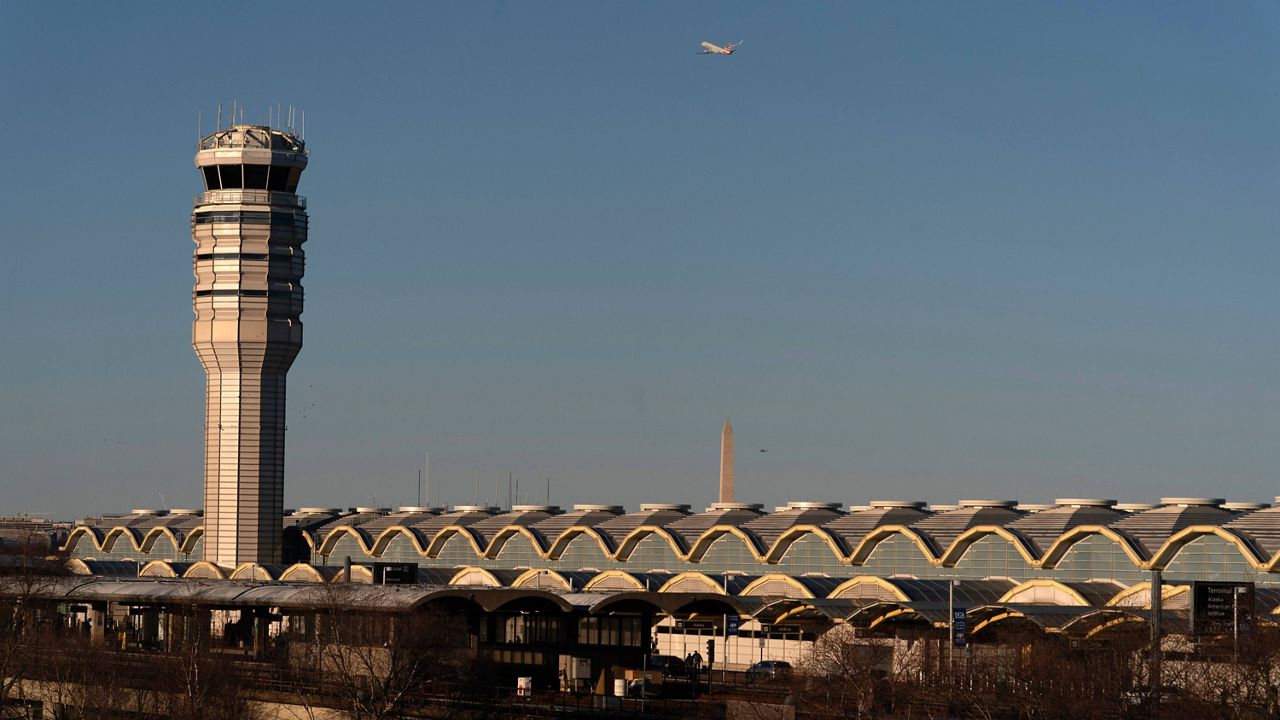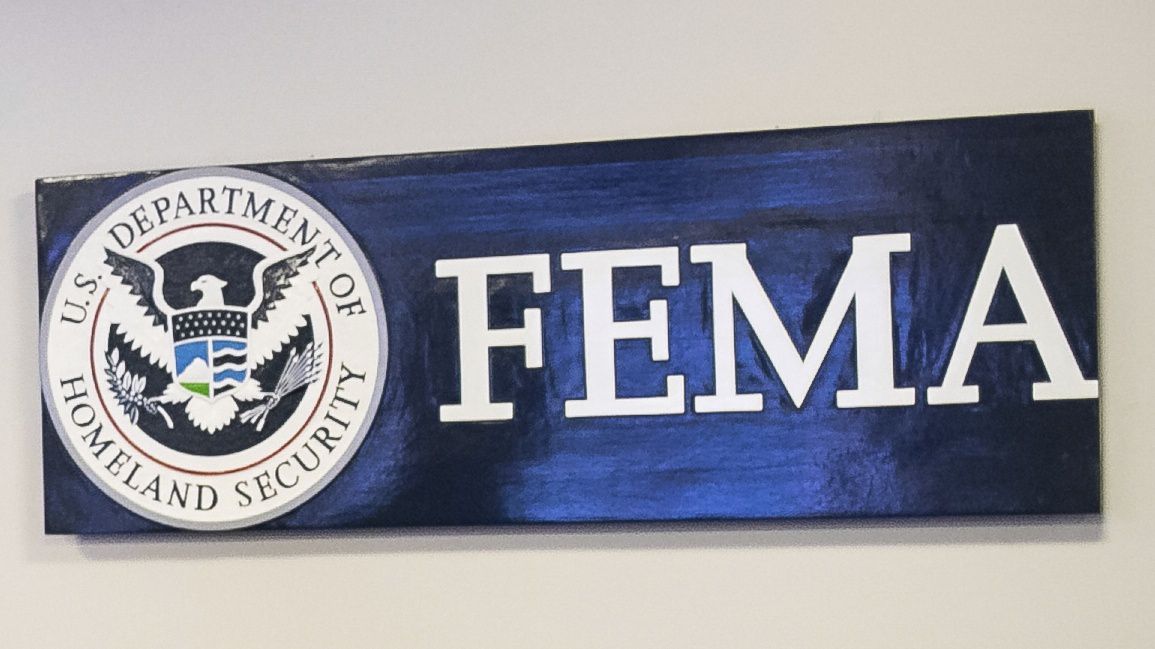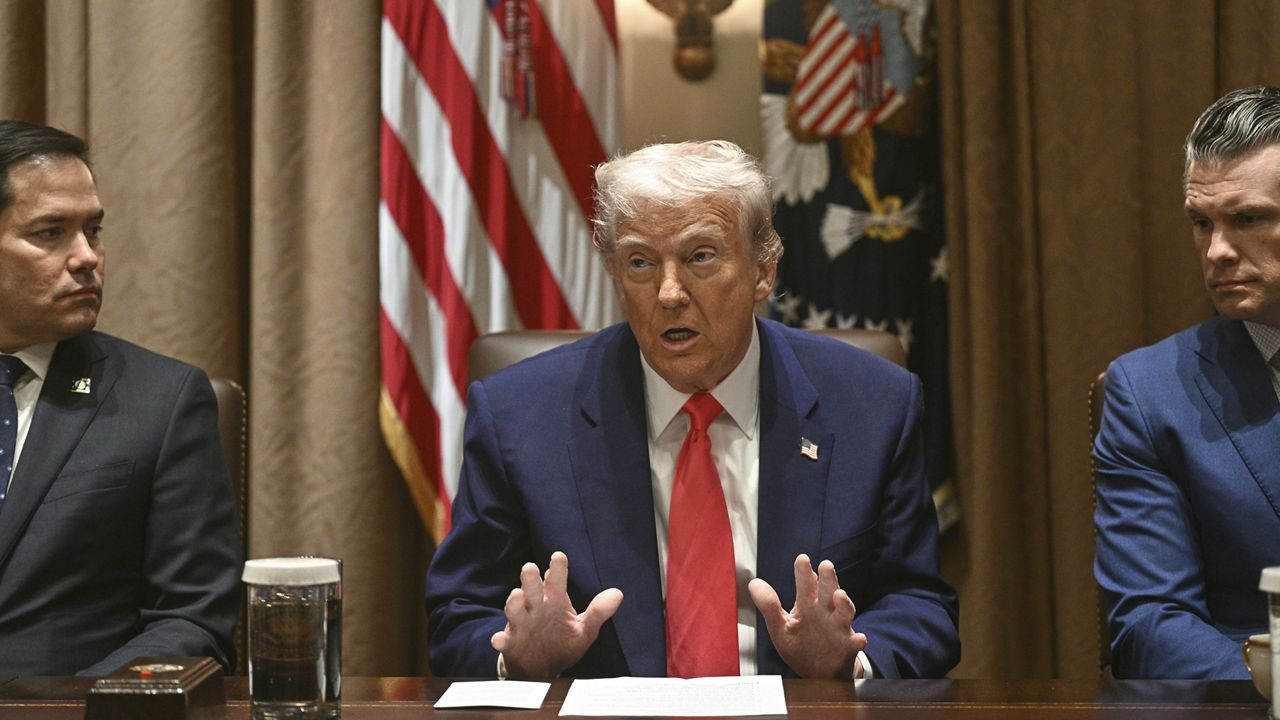Invoking memories of former President Ronald Reagan’s infamous speech forty years ago in the same spot, President Joe Biden on Friday used the backdrop of Pointe du Hoc and its history in the D-Day invasion to beckon Americans to protect democracy at home and around the world.
The remarks in front of seaside cliffs in Normandy also served as a vehicle for the incumbent president to draw an implicit election-year contrast between himself and his 2024 competitor, former President Donald Trump – who Biden often says he believes is a threat to American democracy and whose “America First” foreign policy ideology contrasts with Biden’s warnings of isolationism.
“American democracy asks the hardest of things: to believe that we are a part of something bigger than ourselves,” Biden said, standing in front of the seaside cliffs. “So democracy begins with each of us.”
“It begins when one person decides there's something more important than themselves; When they decide the person they're serving alongside of is someone to look after,” the president continued. “When they decide the mission matters more than their life, when they decide that their country matters more than they do.”
Starting his remarks describing scenes from the day in 1944 when Army Rangers scaled the cliffs of Pointe du Hoc as part of the D-Day invasion that led to the defeat of Nazi Germany in World War II, Biden drew a connection to standing up for Ukraine in the face of Russia’s invasion in what could be seen as an appeal to some at home, particularly in the GOP, who question the United States’ continued financial support of the country.
“They stood against Hitler’s aggression,” Biden said of those who fought at Pointe du Hoc. “Does anyone doubt that they would want America to stand up against Putin’s aggression here in Europe today?”
The line came just hours after Biden sat down with Ukrainian President Volodymyr Zelenskyy in Paris, where the U.S. president apologized for the delay in Congress approving additional funds for the country, a situation the administration says has allowed Russia to make inroads on the battlefield.
As some in the GOP move to a more isolationist view of America’s place on the world stage, perhaps influenced by Trump’s “America First” perspective, Biden has stressed his belief in the importance of strong alliances abroad.
Finding himself navigating two wars overseas – both in Ukraine and the Israel-Hamas war in Gaza – the Democratic president has acclaimed the strength of NATO and commended himself for helping expand it. Finland and Sweden joined the military alliance following Russia’s invasion.
Trump, on the other hand, has been critical of the alliance, particularly how much the U.S. spends on defense compared to other members. Earlier this year he said he would encourage Russia to do what it wants to NATO member countries who do not meet defense spending targets.
“As we gather here today, it’s not just to honor those who showed such remarkable bravery on that day, June 6, 1944, it’s to listen to the echo of their voices, to hear them,” Biden said on Friday. “Because they are summoning us and they’re summoning us now.”
“They ask us: what will we do?” Biden continued. “They’re not asking us to scale these cliffs, they’re asking us to stay true to what America stands for. They're not asking us to give or risk our lives, but they are asking us to care for others and our country more than ourselves. They're not asking us to do their job, they're asking us to do our job: protect freedom in our time, to defend democracy, to stand up to aggression abroad and at home.”
The president on Friday also noted that he was the first president to return to Pointe du Hoc when “none of those 225 brave men who scaled this cliff on D-Day are still alive,” later noting “we need to make the solemn vow to never let them down.”
In 1984, Reagan traveled to Pointe du Hoc amid the Cold War to deliver a speech that similarly sought to draw on the history of the spot.
Biden’s remarks on Friday came one day after he honored veterans and marked the 80th anniversary of D-Day in Normandy. The president on Saturday will continue his trip to France with a state visit with French President Emmanuel Macron.




